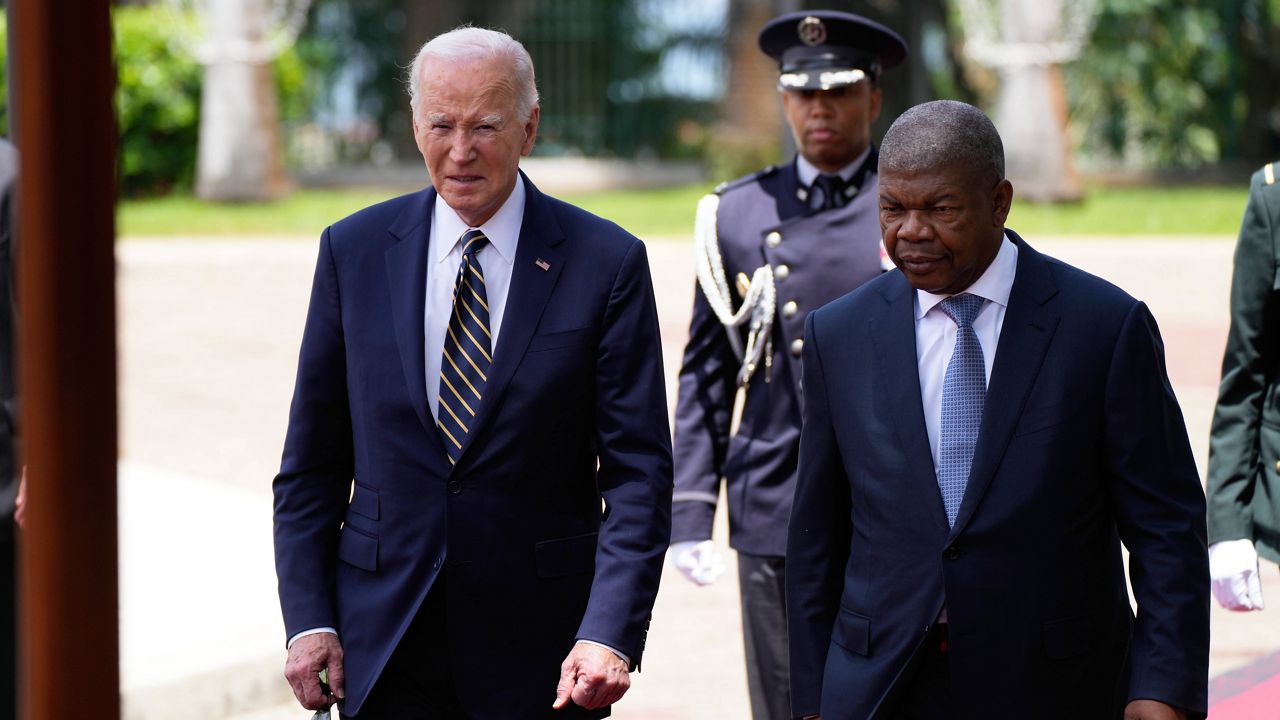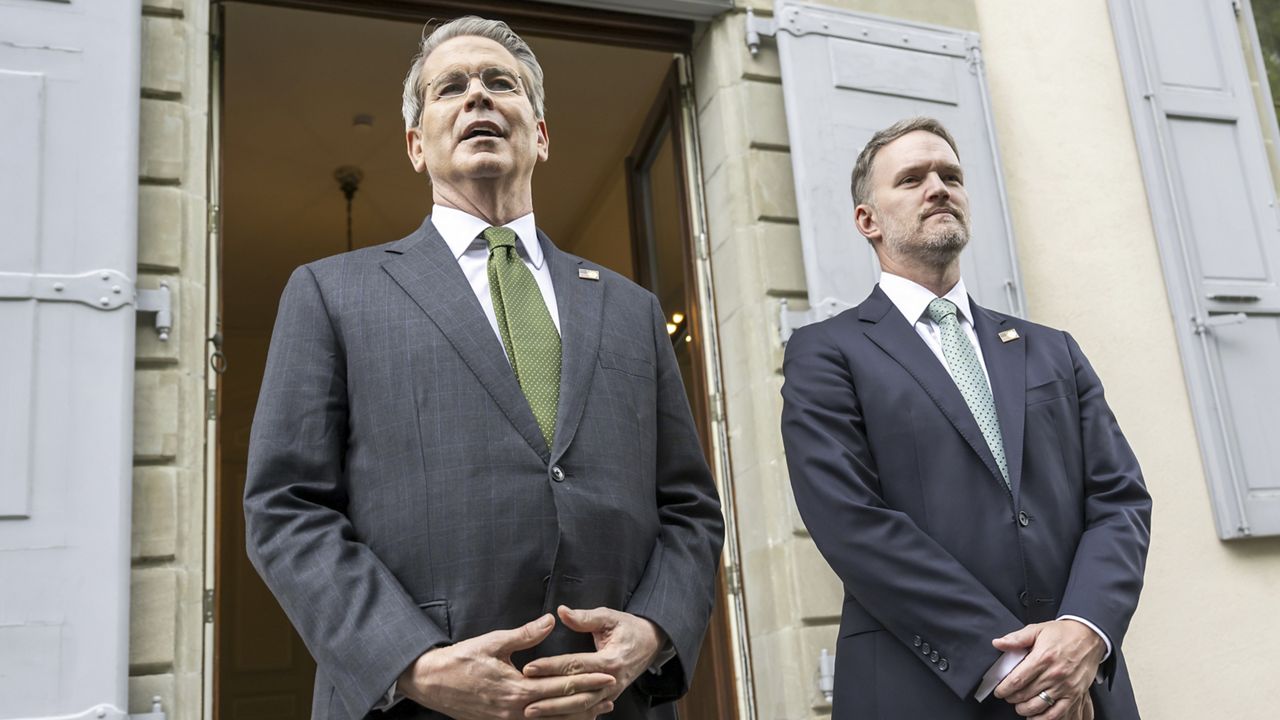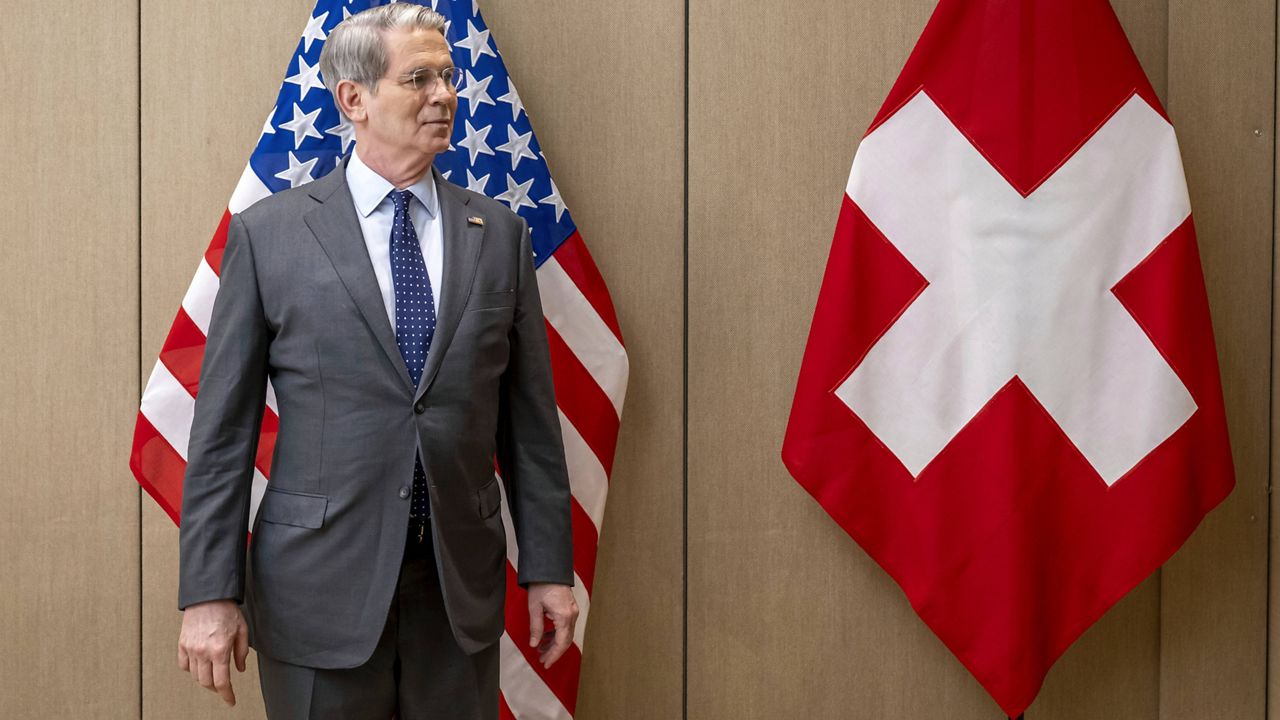LUANDA, Angola — President Joe Biden on Tuesday declared that the future “runs through” Africa while delivering remarks at a slavery museum on the second day of his historic trip to Angola.
Biden’s visit to the sub-Saharan African nation is the first by a U.S. commander in chief and fulfills a two-year-old promise made by the president in the final weeks before he leaves office.
What You Need To Know
- Joe Biden is using the first visit to Angola by a U.S. president to promote billions of dollars of investments in the sub-Saharan African nation, including $3 billion for the Lobito Corridor railway and $1 billion for countries facing historic drought
- He also spoke at a slavery museum, situated next to a 17th-century site where enslaved individuals were baptized before being sent to the Americas, where he stressed the importance of history not being erased
- Biden told Angolan President João Lourenço that "the United States is all in on Africa," later pledging that the future runs through the continent
- But even as the visit was meant to counter China's influence on the African continent, Beijing announced its own move
“One out of every four human beings on Earth will live in Africa by the year 2050 and the ingenuity, determination of young Afrians in particular, like young society leaders I just met with here today, will be undeniable forces in that human progress,” Biden said Tuesday.
After participating in an official arrival ceremony and pledging that the “United States is all in on Africa" during a meeting with Angolan President João Lourenço earlier Tuesday, Biden traveled to the National Museum of Slavery to deliver remarks.
The museum, founded in 1977, is positioned next to a 17th-century site where enslaved individuals were baptized before being sent to the Americas. Angola in particular was home to about 45% of all enslaved Africans sent to the Americas, according to the White House.
“We're gathered in a solemn location because to fully consider how far two countries have come in our friendship, we have to remember how we began,” Biden said.
He went on to refer to slavery as America’s “original sin" and one that has haunted the country before stressing the importance of history not being erased.
“It's our duty to face our history – the good, the bad and the ugly, the whole truth,” Biden said. “That's what great nations do.”
Biden also used his remarks to announce $1 billion in humanitarian support for Africans displaced due to historic drought facing some countries on the continent.
But even as the visit was meant to counter China's influence on the African continent of over 1.4 billion people by showcasing a U.S. commitment of $3 billion for the Lobito Corridor railway redevelopment linking Zambia, Congo and Angola, China announced its own move.
The corridor across southern Africa is meant to make it easier to move raw materials for export and advance the U.S. presence in a region rich in critical minerals used in batteries for electric vehicles, electronic devices and clean energy technologies.
China already has heavy investments in mining and processing African minerals, and on Tuesday it announced it is banning exports to the United States of gallium, germanium, antimony and other high-tech materials. The announcement came a day after the U.S. expanded its list of Chinese technology companies subject to controls.










